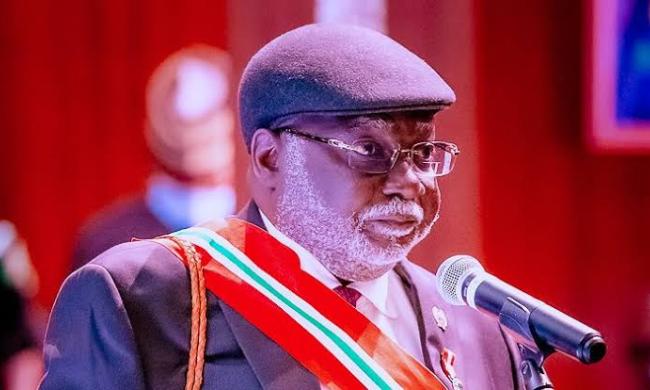
Nigeria’s outgoing Chief Justice, Olukayode Ariwoola, has faced serious allegations of nepotism during his time in office. Over his two-year tenure, accusations emerged that he appointed several of his family members to key judicial positions. These appointments reportedly include his son as a judge of the Federal High Court, his daughter-in-law as a judge of the High Court of the Federal Capital Territory, his brother as an auditor for the National Judicial Council (NJC), and another relative as a Justice of the Court of Appeal.
Critics argue that Ariwoola’s actions represent a blatant disregard for the Judicial Code of Conduct, which strictly prohibits nepotism. The Code warns against judges who use their position to benefit themselves or their relatives, stating that such actions constitute an abuse of power. As he approaches his mandatory retirement on August 22, 2024, when he turns 70, these accusations have cast a shadow over his legacy.
Human rights activist and professor Chidi Anselm Odinkalu has been particularly vocal in his criticism of Ariwoola’s tenure. Odinkalu noted that Ariwoola’s final meeting as Chair of the NJC was marked by favoritism, citing the appointment of two sisters to the High Courts of Kwara and Ondo States, just weeks after appointing their brother to the High Court of the Federal Capital Territory. Odinkalu pointed out that their father was a well-known judicial benefactor, further fueling concerns about nepotism.
In a broader critique, Odinkalu highlighted the case of a lawyer who had previously been sanctioned by the Legal Practitioners Privileges Committee (LPPC) for dishonesty but was later elevated to the rank of Senior Advocate of Nigeria (SAN) under Ariwoola’s leadership. This decision, according to Odinkalu, exemplifies the troubling legacy of Ariwoola’s tenure.
As Ariwoola prepares to step down, the state of Nigeria’s judiciary remains a significant concern. In a November 2023 address, Senior Advocate of Nigeria Ebun Sofunde expressed deep dismay over the decline in judicial reputation, describing it as being “at an all-time low.” Sofunde’s remarks reflect widespread dissatisfaction with the performance of the Supreme Court under Ariwoola’s leadership.
Odinkalu’s assessment of Ariwoola’s time as Chief Justice paints a grim picture. He argued that instead of focusing on restoring public trust in the judiciary, Ariwoola appeared more concerned with securing material benefits for himself and his family. As a result, his tenure further eroded public confidence in the judicial system rather than rebuilding it.
In summary, Odinkalu believes that Ariwoola’s legacy will be defined by the speed with which he addressed any perceived neglect of his family’s welfare and his home village of Iseyin in Oyo State. As his time as Chief Justice draws to a close, these allegations of nepotism and favoritism will likely continue to overshadow his contributions to Nigeria’s judiciary.
For more updates, join our WhatsApp channel: https://whatsapp.com/channel/0029VabITrvEAKW7DSkTfP0J.